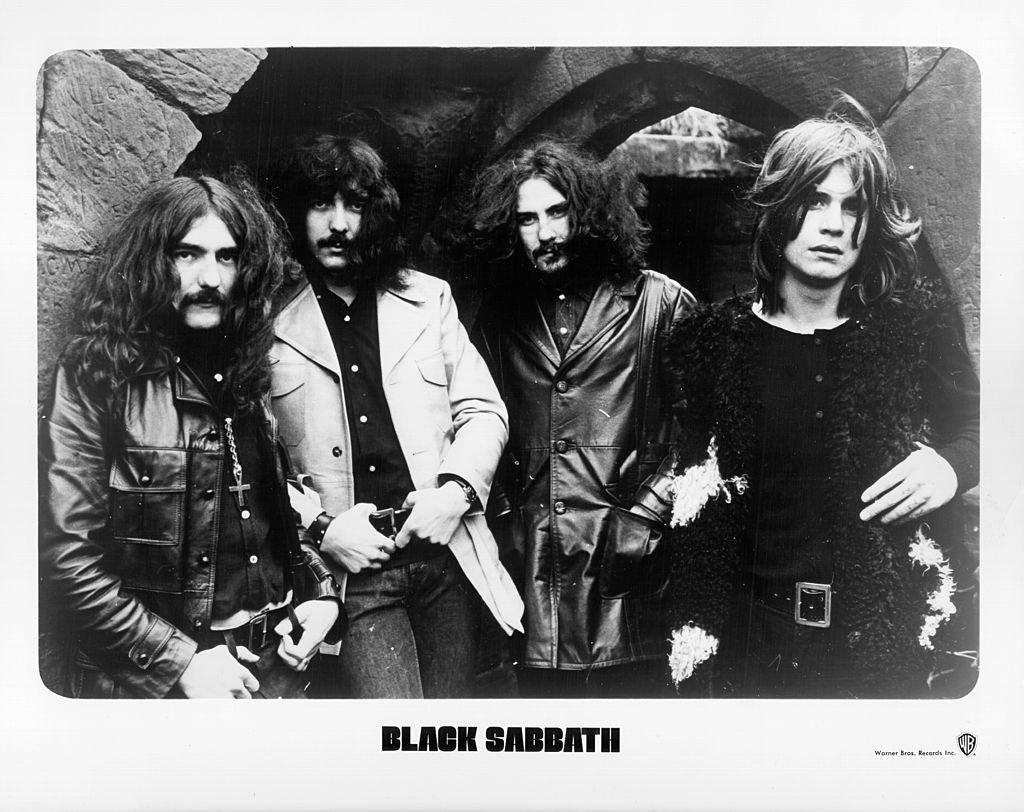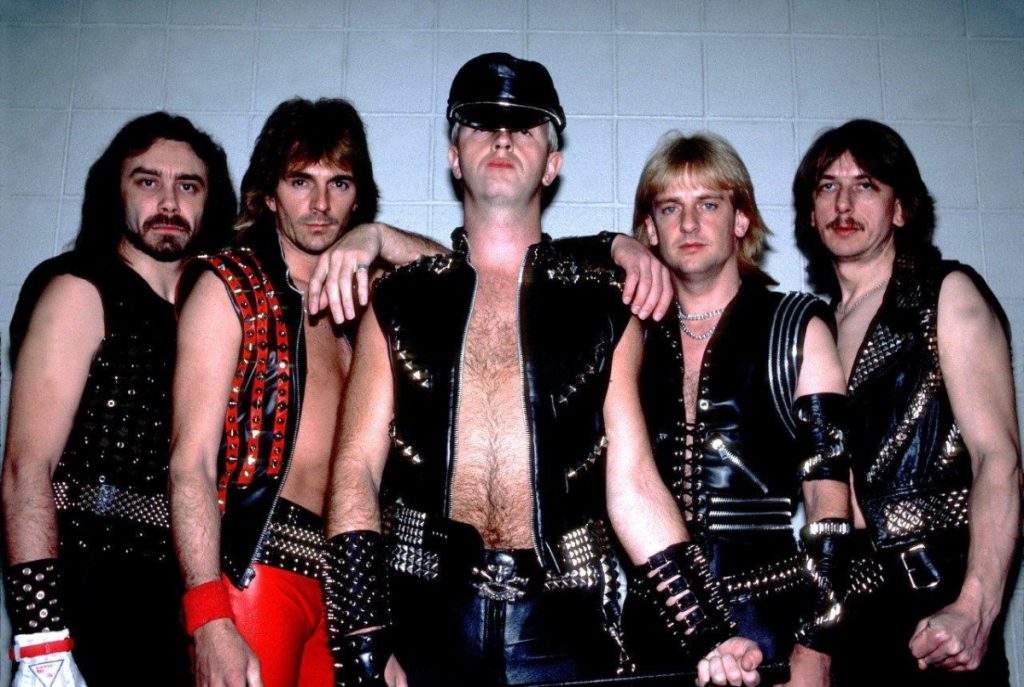If you’re a fan of music that packs a punch and unleashes raw power, then heavy metal is the genre for you. With its thunderous guitar riffs, pounding drums, and soaring vocals, heavy metal has been captivating audiences for decades. In this comprehensive guide, we’ll take a deep dive into the world of heavy metal music, exploring its origins, evolution, iconic artists, and top songs. So, grab your leather jacket, turn up the volume, and get ready to headbang! Photo by Tim Toomey on Unsplash
Discover GRAMMY GO courses exclusively on Coursera
What Is Heavy Metal Music?
Heavy metal is a sub-genre of rock music that emerged in the 1970s. It is characterized by its heavy guitar-driven sound, aggressive vocals, and powerful rhythms. The roots of heavy metal can be traced back to the late 1960s when bands like Black Sabbath, Led Zeppelin, and Deep Purple began incorporating blues and rock influences into their music. These bands laid the foundation for what would become the heavy metal sound.
Instrumentation and Themes
Heavy metal music typically features a lineup of drums, bass guitar, rhythm guitar, lead guitar, and vocals. The guitar, with its distorted and amplified sound, is the driving force behind the genre. Heavy metal lyrics often explore themes of rebellion, darkness, fantasy, and social issues. While some bands delve into more controversial subjects, others focus on storytelling and mythology.
Evolution and Sub-genres
Over the years, heavy metal has evolved and branched out into various sub-genres, each with its own unique sound and style. Some notable sub-genres include:
- Thrash Metal: Known for its aggressive and fast-paced sound, thrash metal bands like Metallica and Slayer took heavy metal to new levels of speed and intensity in the 1980s.
- Glam Metal: Also known as hair metal, glam metal bands like Poison and Mötley Crüe combined heavy metal with a glamorous and visually flamboyant image, complete with big hair, makeup, and flashy outfits.
- Death Metal: Characterized by its guttural vocals, complex guitar riffs, and intense lyrics, death metal bands like Cannibal Corpse and Morbid Angel pushed the boundaries of heaviness and brutality.
- Power Metal: Power metal bands like Helloween and Blind Guardian incorporated elements of classical music, with epic storytelling and soaring vocals. This sub-genre often features fantasy and mythological themes.
- Nu Metal: Emerging in the late 1990s, nu metal bands like Korn and Slipknot fused heavy metal with elements of hip-hop, alternative rock, and electronic music, creating a new and experimental sound.
These are just a few examples of the many sub-genres within heavy metal. Each sub-genre brings its own unique flavor to the genre, attracting different types of fans and pushing the boundaries of what heavy metal can be.
The History and Evolution of Heavy Metal Music
The Birth of Heavy Metal: Black Sabbath and Beyond

PHOTO: MICHAEL OCHS ARCHIVES/GETTY IMAGES
The term “heavy metal” was first used in the late 1960s and early 1970s to describe the sound of bands like Led Zeppelin, Deep Purple, and Black Sabbath. However, it was Black Sabbath who truly laid the foundation for the genre. Their self-titled debut album, released in 1970, featured heavy, distorted guitar riffs, dark lyrics, and a sense of heaviness that had never been heard before.

PHOTO: DICK BARNATT
Black Sabbath’s influence on heavy metal cannot be overstated. Their sound, which combined elements of blues, rock, and a dark, foreboding atmosphere, set the stage for what was to come. Other bands, like Judas Priest and Iron Maiden, followed in Black Sabbath’s footsteps, further solidifying the sound and aesthetic of heavy metal.
The Rise of Classic Heavy Metal: 1970s and 1980s
In the late 1970s and early 1980s, heavy metal began to reach new heights of popularity. Bands like Judas Priest, Iron Maiden, and Dio brought a new level of technicality and virtuosity to the genre. These bands incorporated elements of classical music, with intricate guitar solos and powerful vocals.

PHOTO COURTESY OF SONY LEGACY
During this time, heavy metal also faced its fair share of controversy. The genre’s lyrics, often exploring dark and taboo subjects, led to accusations of promoting violence, Satanism, and rebellion. This culminated in the infamous “Satanic Panic” of the 1980s, where heavy metal came under scrutiny from religious and conservative groups.
The Thrash Metal Revolution: 1980s and Beyond
In the 1980s, a new wave of heavy metal emerged with the rise of thrash metal. Bands like Metallica, Slayer, and Megadeth pushed the boundaries of speed and aggression, creating a sound that was faster, heavier, and more intense than ever before. Thrash metal became known for its blistering guitar solos, rapid-fire drumming, and politically charged lyrics.

PHOTO: BRIAN RASIC/GETTY IMAGES
The popularity of thrash metal paved the way for other sub-genres to flourish, including death metal, black metal, and progressive metal. Each sub-genre brought its own unique twist to heavy metal, expanding the genre’s sonic palette and pushing the limits of what heavy metal could be.
The Evolution Continues: Alternative and Nu Metal
In the 1990s and early 2000s, heavy metal underwent another evolution with the rise of alternative and nu metal. Alternative metal bands like Tool and System of a Down incorporated elements of alternative rock and progressive metal, creating a more melodic and introspective sound.
Meanwhile, nu metal bands like Korn, Slipknot, and Deftones blended heavy metal with elements of hip-hop, electronic music, and alternative rock. This fusion of genres created a new and innovative sound that resonated with a younger generation of music fans.

PHOTO: SCOTT GRIES/IMAGEDIRECT
The Present and Future of Heavy Metal
Today, heavy metal continues to thrive around the world. New bands are pushing the boundaries of the genre, incorporating elements of other genres like progressive rock, folk, and even jazz. The internet has also played a significant role in the democratization of heavy metal, allowing bands to reach a global audience and connect with fans in new and exciting ways.
As heavy metal evolves, it remains a powerful and cathartic form of expression for both musicians and fans. With its unapologetic intensity and passionate fanbase, heavy metal shows no signs of slowing down. Whether you’re a casual listener or a die-hard metalhead, there’s something in the world of heavy metal for everyone.
Heavy Metal Music Artists and Stars
Throughout the history of heavy metal, numerous artists have risen to stardom and left an indelible mark on the genre. These artists have not only shaped the sound of heavy metal but also influenced generations of musicians. Here are five iconic heavy metal artists and stars:
- Black Sabbath: Considered the pioneers of heavy metal, Black Sabbath’s dark and heavy sound set the template for the genre. Led by the legendary Ozzy Osbourne, Black Sabbath’s music continues to inspire and captivate listeners to this day.
- Metallica: With their aggressive sound, technical proficiency, and anthemic songs, Metallica became one of the most influential heavy metal bands of all time. Their albums like “Master of Puppets” and “Ride the Lightning” are considered classics of the genre.
- Iron Maiden: Known for their epic songs, operatic vocals, and iconic mascot Eddie, Iron Maiden has become synonymous with heavy metal. Their albums like “The Number of the Beast” and “Powerslave” are regarded as masterpieces of the genre.
- Judas Priest: With their powerful vocals and twin guitar harmonies, Judas Priest helped define the sound of classic heavy metal. Songs like “Breaking the Law” and “Painkiller” have become anthems of the genre.
- Slayer: Known for their blistering speed and aggressive sound, Slayer is considered one of the “Big Four” of thrash metal alongside Metallica, Megadeth, and Anthrax. Their albums like “Reign in Blood” are hailed as classics of extreme metal.
These artists, among many others, have left an undeniable impact on heavy metal and continue to inspire new generations of musicians.
Popular Heavy Metal Music Songs
When it comes to heavy metal, the songs are the heart and soul of the genre. From iconic riffs to powerful choruses, these songs have stood the test of time and continue to be celebrated by metalheads around the world. Here are five of the top heavy metal songs that have become anthems of the genre:
- Black Sabbath – War Pigs: This epic song from Black Sabbath’s classic album “Paranoid” captures the essence of heavy metal with its heavy riffs, thunderous drums, and thought-provoking lyrics.
- Metallica – Master of Puppets: Considered one of Metallica’s greatest achievements, “Master of Puppets” is a relentless onslaught of thrash metal at its finest, showcasing the band’s technical prowess and songwriting skills.
- Iron Maiden – The Number of the Beast: With its iconic galloping rhythm and Bruce Dickinson’s soaring vocals, “The Number of the Beast” is a heavy metal anthem that has become synonymous with Iron Maiden.
- Judas Priest – Painkiller: This blistering speed metal track showcases Judas Priest’s signature sound, with Rob Halford’s powerful vocals and Glenn Tipton and K.K. Downing’s lightning-fast guitar solos.
- Slayer – Raining Blood: A staple of thrash metal, “Raining Blood” is a relentless assault of aggression and speed. The song’s dark and intense atmosphere has made it a fan favorite and a classic of the genre.
These songs represent just a small sample of the countless heavy metal classics that have shaped the genre. Each song encapsulates the raw power and energy that makes heavy metal such a visceral and captivating genre.
GRAMMY Award Categories for Heavy Metal Music
Since 1989, the GRAMMY Awards have recognized excellence in music across various genres, including heavy metal. The Recording Academy has introduced several categories specifically dedicated to heavy metal and hard rock. Here are the GRAMMY Award categories for heavy metal music:
- Best Metal Performance: This category honors the best vocal or instrumental performances in the heavy metal genre. It recognizes individual songs or tracks and the artists behind them.
- Best Metal Song: This category recognizes songwriters for their contributions to heavy metal music. It honors the composition and lyrical content of a song within the genre.
- Best Metal Album: This category celebrates the best albums in the heavy metal genre. It recognizes the overall quality and artistic achievement of an album within the genre.

PHOTO: LISA LAKE/GETTY IMAGES
These categories allow the Recording Academy to showcase and celebrate the diverse talent within the heavy metal genre. They provide an opportunity for heavy metal artists to be recognized for their contributions to the music industry.
Notable Heavy Metal Music Artist GRAMMY Winners
Over the years, many heavy metal artists have been honored with GRAMMY Awards for their contributions to the genre. These artists have not only achieved commercial success but have also been recognized for their artistic excellence. Here are some notable heavy metal music artist GRAMMY winners:
- Metallica: The iconic thrash metal band Metallica has won multiple GRAMMY Awards throughout their career. They have been recognized in various categories, including Best Metal Performance and Best Metal Album.
- Black Sabbath: Considered the pioneers of heavy metal, Black Sabbath has also been honored with GRAMMY Awards. Their contributions to the genre have been recognized with awards for Best Metal Performance and Best Metal Album.
- Iron Maiden: The British heavy metal legends Iron Maiden have received GRAMMY Awards for their contributions to the genre. They have been recognized in categories such as Best Metal Performance and Best Metal Album.
- Slipknot: Known for their intense and aggressive sound, Slipknot has won GRAMMY Awards for their contributions to heavy metal. They have been honored in categories like Best Metal Performance and Best Metal Album.
These artists, among many others, have been recognized by the Recording Academy for their outstanding achievements in the heavy metal genre. Their GRAMMY wins are a testament to their talent, creativity, and lasting impact on the world of music.
From its humble beginnings to its global dominance, heavy metal has become one of the most influential and enduring genres in music history. Its raw power, intense energy, and unapologetic attitude have captivated audiences and inspired countless musicians.
With its diverse sub-genres, iconic artists, and timeless songs, heavy metal continues to evolve and push the boundaries of what music can be. Whether you’re headbanging to Black Sabbath, thrashing to Metallica, or moshing to Slipknot, heavy metal is a genre that will always leave a lasting impression. So, whether you’re a die-hard metalhead or simply curious about the genre, turn up the volume, embrace the heaviness, and let heavy metal take you on a wild and exhilarating journey. As the saying goes, “If it’s too loud, you’re too old!”




















